Join Felipe Contreras, part of the INUTW team, as he participates in the Hollywood Climate Summit and discover how these gatherings can result in greater inclusion of Indigenous Peoples and Local Communities in Hollywood.

Just a few weeks ago, our colleague, Felipe Contreras, had the pleasure of attending the Hollywood Climate Summit, held in the glamorous setting of the Samuel Goldwyn Theatre inside the Academy of Motion Pictures and Arts. This wasn’t his first time actively participating; it was the second year in a row they were diving into this melting pot where the entertainment industry and environmental activism meet to forge new paths for active listening and collective action.
Meet Felipe
For over seven years, Felipe has been a filmmaker, a photojournalist, a podcaster, and an event producer who has spent much of that time working with and amplifying the work of Indigenous Peoples to inspire and use story to make a positive impact on the world.

For the last year and a half, he has been working at If Not Us Then Who as a producer on the communication and development team. Two of the main projects he has been a part of are the Indigenous Imaginarium, a gathering of Indigenous Creatives within the Hollywood Industry to re-imagine our climate futures and expand representation within the climate dialogue, and the Impact Storytellers Podcast, a heart-centered podcast focusing on unearthing Indigenous narratives. Part of his role at INUTW is to connect, network, bridge, amplify and pressure other sectors to be more informed and care about what is going on in the Global Indigenous movement to the rest of the climate and environmental industry.
Joining the Hollywood Climate Summit
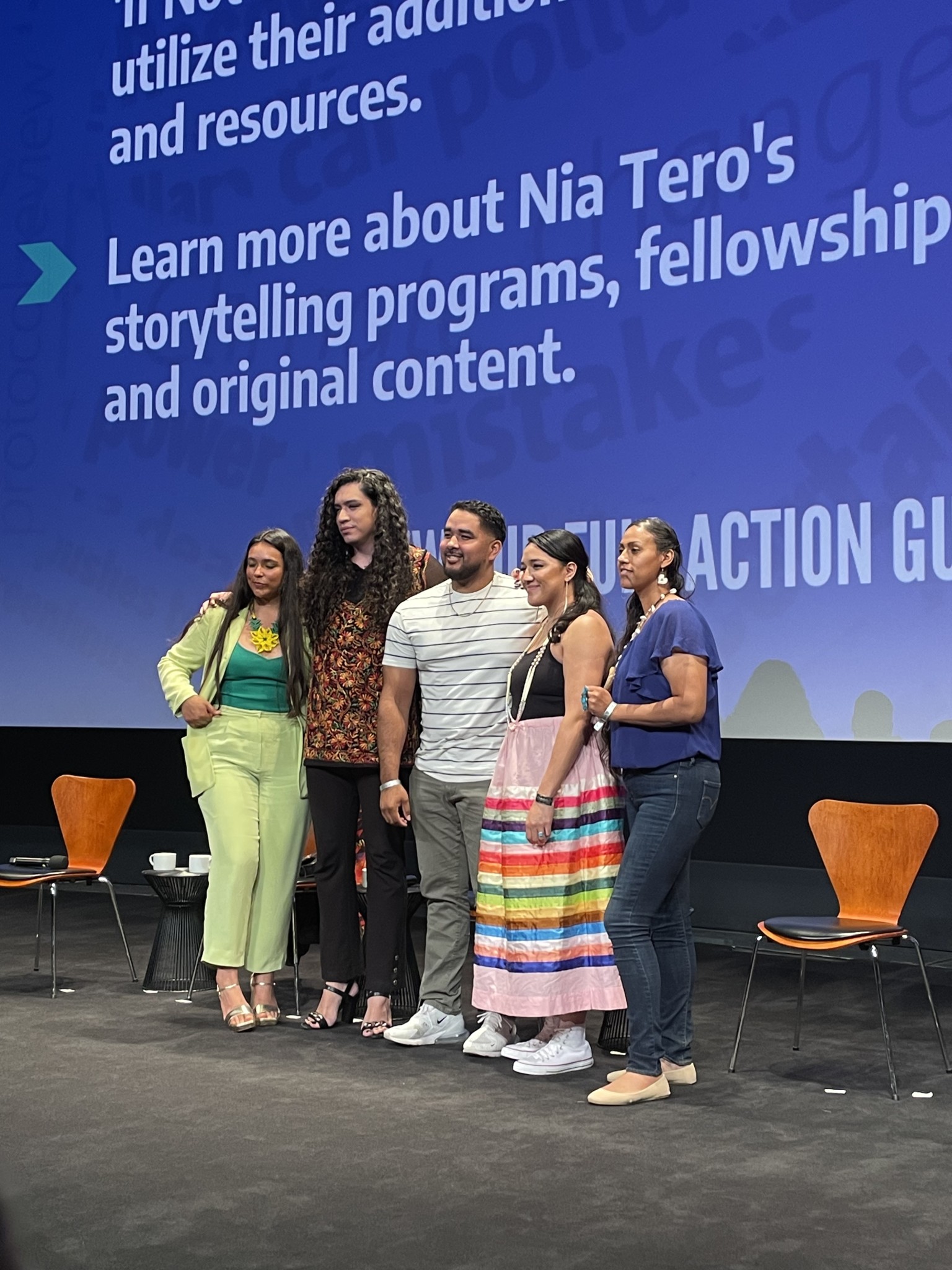
Last year, INUTW partnered with the summit on a panel, exploring Indigenous perspectives and solutions on environmental issues titled “Reframing Our Ways of Being”. The panel was moderated by actor Brisa Covarrubias, included Chad Charlie, writer from Reservation Dogs, speaking about how Climate Change and Sea-level rising are impacting his island and nation; and Atah Cocker, Scientist and Climate Resilience Director of the Kiowa Community, is building programs working with tribes across the United States to develop sovereign sustainable solutions for land, water, and community wellness. But the glue was how storytelling played a vital role in sharing their solutions to the world.
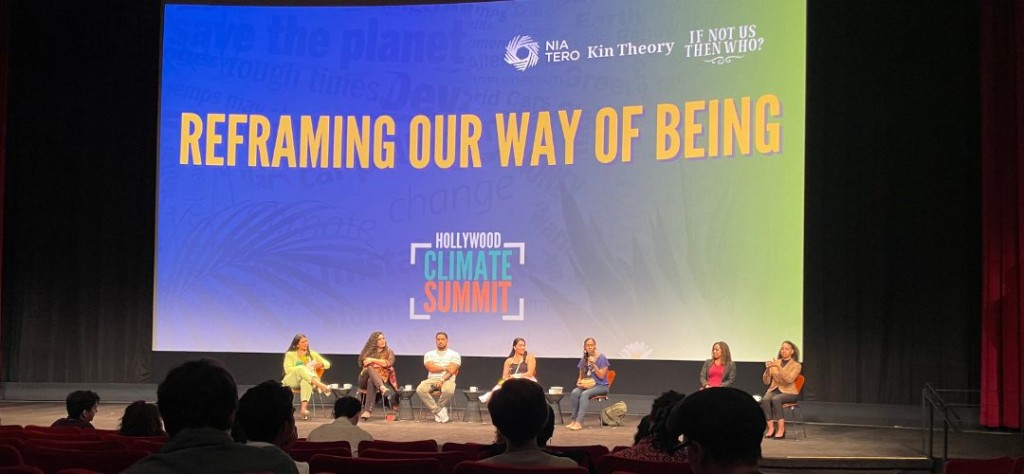
This year, he served as a consultant supporting the inaugural content marketplace—a platform and screening space aimed at promoting climate related feature films to global distributors. The marketplace featured a whole day dedicated to Indigenous programming. It was a pivotal step towards amplifying Indigenous voices in an industry that has so often overlooked them.
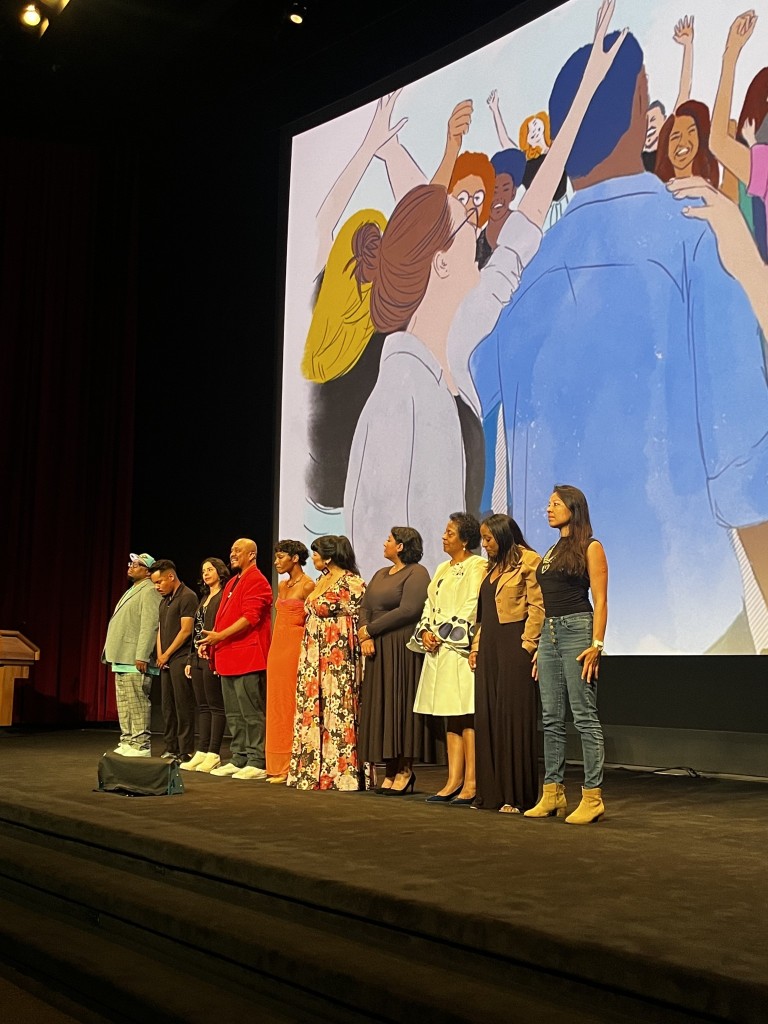
This year stories about Indigenous resistance and protection of nature were front and center with films like “Bring Them Home” and “Standing Above The Clouds”, two films that feature movements happening in different parts of the globe where Indigenous people are rallying to protect what is sacred and vital. As we continue to grow at If Not Us Then Who, we strive for our programs to continue to flourish and as we seek to expand to that collection of films with some of the stories we produce. Stories from the frontlines of Indigenous Peoples and Local Communities that can shift the industry’s perspective of what a climate driving story can say.


The summit needs to continue to become more diverse specifically when it comes to IP&LCs because it is so much more than just a gathering; it was a space that adopted in practice the urgent need for coalition building. From East Los Angeles to the shores of Louisiana, from Puerto Rico to Palestine, stories of climate impact were shared by voices both renowned and rising. One of the core messages this year was centered around this idea of a “New Paradigm”, coalition building—acknowledging that climate change isn’t just an environmental issue, but a multifaceted crisis that intersects with economics, social justice, and cultural survival. The discussions highlighted the necessity of embracing diverse perspectives and using every tool at our disposal, including humor and art, to foster understanding and drive change. Felipe thinks this conversation must continue to grow and become more disruptive in order to foster the true strength of collective power. Making space for even more Indigenous voices and people of color.
Our presence should radiate a room and our spirit should be felt, because we need to be actively involved in EVERY climate space.
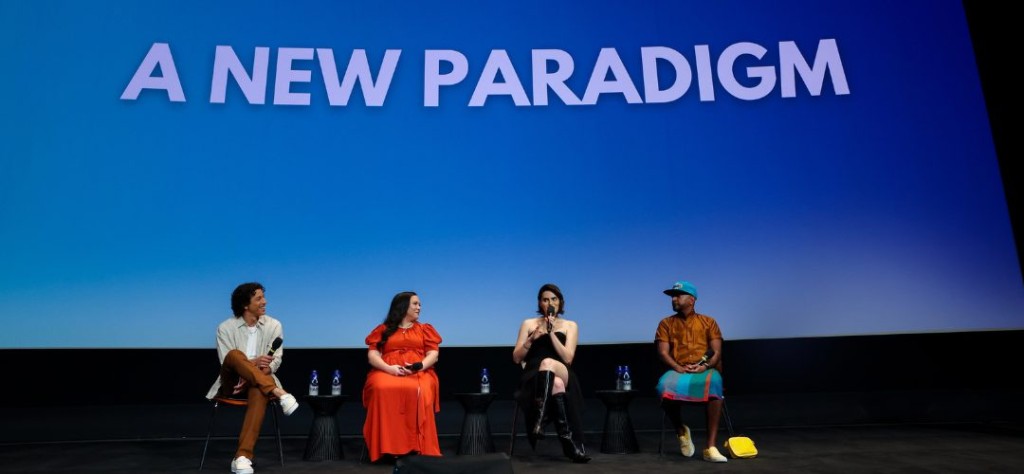
One of the key standout programs was “Roots and Routes,” produced by Sierra Santana. This powerful performance included a variety of poetic showcases that included the rhythms of Hip Hop and R&B with the poignant narratives of poets and storytellers. It delved into themes of home, displacement, and resilience, challenging the audience to reconsider what it means to belong and to fight for one’s rights in a rapidly changing world.
This capped the summit off with a TED experience that featured Cristina Mittermeier, who shared words of encouragement to pursue your journey of finding your voice and leveraging its unique strengths to advocate for the planet. Her words resonated with much of the audience deeply, reminding us that finding our path doesn’t require conforming to pre-set molds; it demands authenticity and a commitment to our values.
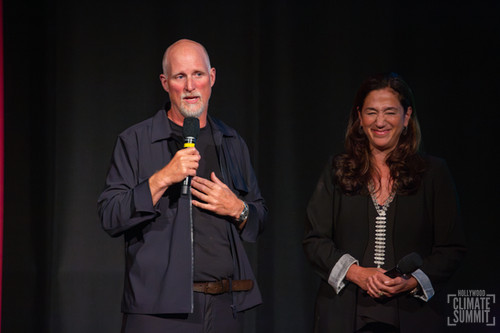
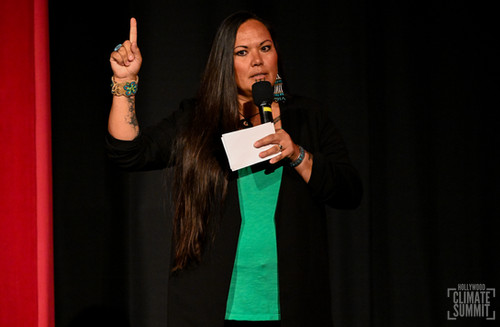
“I grew up in a time where we listened to our elders. Entertainment was one-on-one visiting, personal communication, storytelling. And our stories weren’t just entertainment there was always a teaching and a lesson and values that we learn through those stories to live by”
Jodie Potts-Joseph, Hän Gwich’in and Land Protector
Throughout the summit, the call to action was clear: stand up, vote, and be proactive in making your voice heard but most importantly, KEEP TELLING STORIES.
As the entertainment industry seeks to align more closely with sustainability, the role of storytellers and creatives is increasingly vital, especially those from Indigenous and Local Communities. We will keep participating in spaces like this because we know our value. Our stories are not just art; they are visions of what we want to envision—and help realize—a better world.
For Felipe, it’s spaces like this where he feels a sense of responsibility to ensure the networks at If Not Us Then Who are included in the discourse. That our fights deserve to be center stage. Later this year, Impact Storytellers Season 2 will be released, in the fall we will be attending New York Climate Week and COP 16, and next year we will be producing another Imaginarium where we will be bringing these networks together in our collective power. Please stay tuned here.
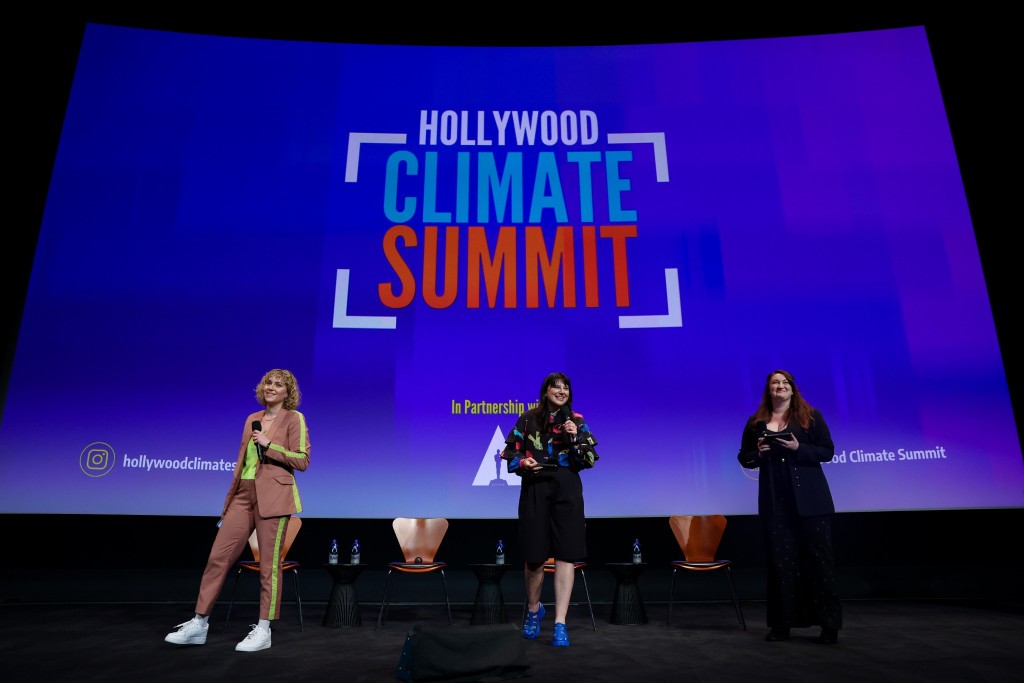
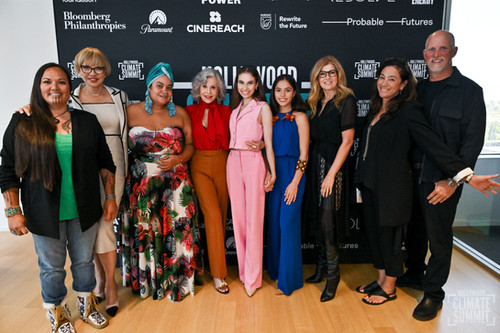
Blog written by
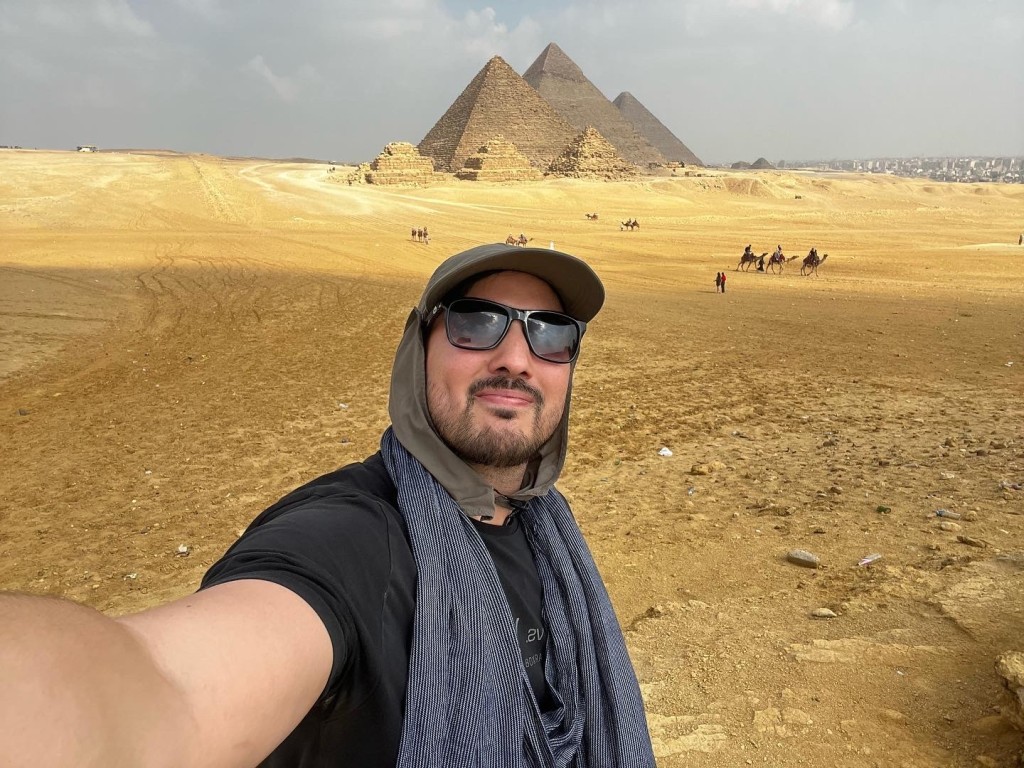
Felipe Contreras
US
Filmmaker & Development